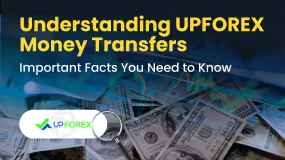Abstract:A 50-year-old Malaysian housewife recently lost RM82,175 to a fraudulent investment scheme promoted on Facebook in July. The victim, a former secretary in a private company, was initially attracted to the enticing investment opportunity and followed a link from the advertisement that directed her to WhatsApp to connect with the scheme's operator.

A 50-year-old Malaysian housewife recently lost RM82,175 to a fraudulent investment scheme promoted on Facebook in July. The victim, a former secretary in a private company, was initially attracted to the enticing investment opportunity and followed a link from the advertisement that directed her to WhatsApp to connect with the scheme's operator.
According to Jasin district police chief DSP Ahmad Jamil Radzi, the victim received an overview of the investment packages and was asked to pay an RM1,235 registration fee to participate. Upon registration, the fraudsters informed her that she had reportedly earned RM8,000 in returns, an assertion that prompted her to invest additional funds with hopes of securing even higher profits. This early success story appeared convincing enough to lead the victim to commit more resources to the scheme.
In her pursuit of greater returns, the victim went as far as withdrawing her Employee Provident Fund (EPF) savings accumulated over two decades. Over the course of several weeks, she made multiple transfers to five different bank accounts belonging to various individuals, amounting to a total of RM82,175. However, her trust in the scheme began to wane when she encountered difficulties in retrieving the promised returns. The operators of the scheme instead demanded an additional RM20,000, citing it as a required “withdrawal tax,” a condition that raised her suspicions about the legitimacy of the entire operation.

Upon realizing that she had been deceived, the victim lodged a formal complaint at the Jasin Police Station. Authorities have since launched an investigation under Section 420 of the Penal Code, which addresses offenses related to cheating and dishonesty. Police Chief Ahmad Jamil Radzi has urged the public to remain cautious and vigilant against similar scams that continue to target unsuspecting individuals through social media channels.
The incident underscores the ongoing threat posed by fraudulent investment schemes, often disguised as legitimate opportunities, which prey on individuals seeking to increase their financial security. Authorities advise potential investors to conduct thorough background checks and seek guidance from trusted financial advisors before committing to unfamiliar investment programs. This case serves as a stark reminder of the risks involved in online financial schemes and the importance of safeguarding personal savings against fraudulent promises.

To prevent falling victim to fraudulent schemes like this one, using tools like WikiFX can be a game-changer. WikiFX provides detailed information on brokers, including regulatory status, customer reviews, and safety ratings, allowing users to verify the legitimacy of any investment platform before committing their money. With access to in-depth insights and risk alerts, WikiFX equips potential investors with the resources to make informed decisions and avoid unauthorised or unlicensed entities. By checking with WikiFX, users can confidently protect their savings and avoid the costly traps set by unscrupulous investment syndicates.












